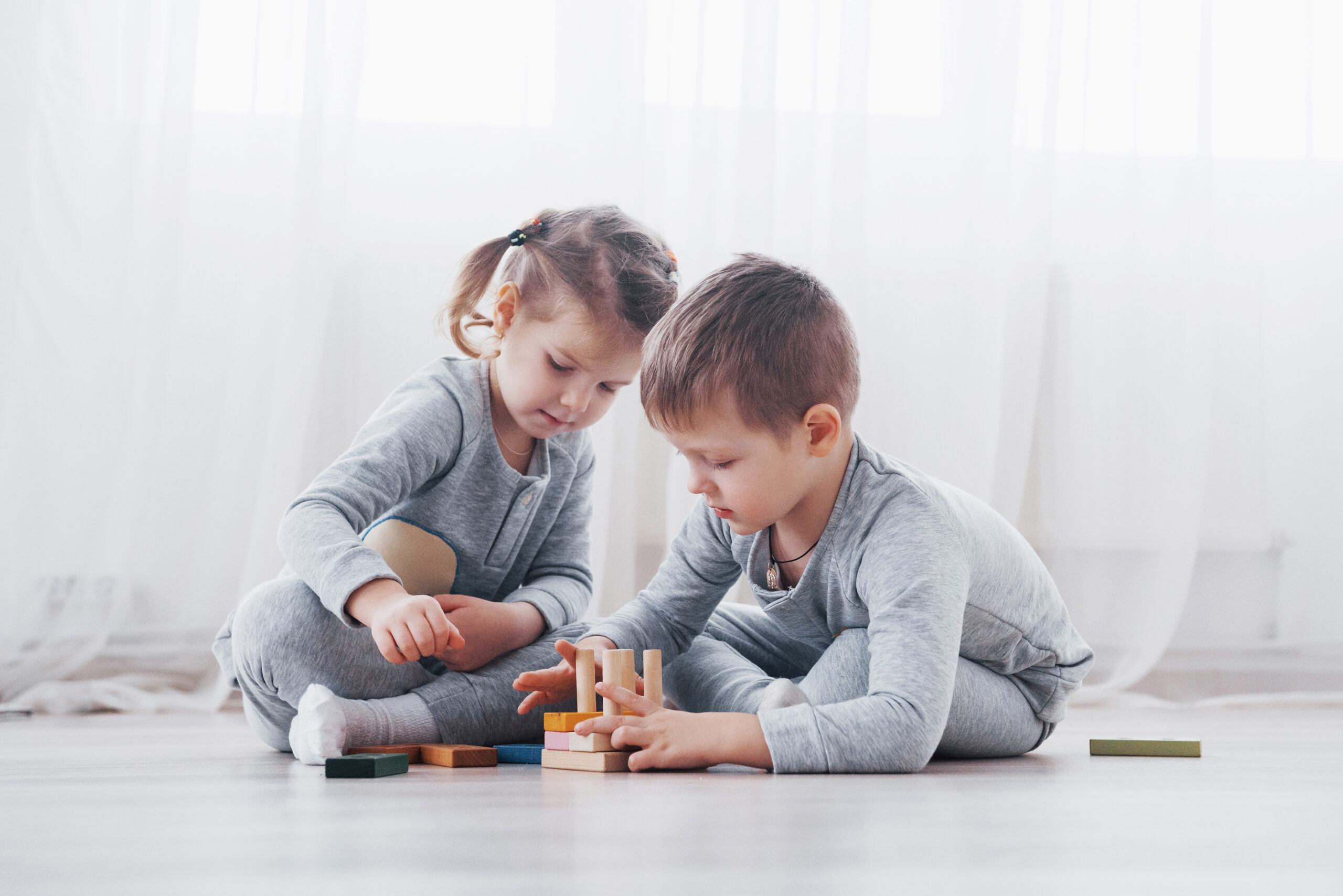This weblog provides a abstract of the findings and implications of a latest systematic evaluation of research wanting on the effectiveness of interventions for younger individuals with sibling psychological well being situations. Solely 4 papers have been included on this evaluation, highlighting the dearth of evaluations for interventions supporting these younger individuals.
Two research used family-based remedy for consuming issues and the opposite two assessed sibling help teams. The proof included is essentially of weak high quality. This evaluation discovered that sibling help teams might supply reduction to siblings, while family-based remedies would possibly undermine sibling well-being. We then think about the implications these findings have for psychological well being providers and households.
Why is sibling psychological well being vital?
Psychological well being situations can have an effect on the entire household. A teen’s psychological well being situation can have a knock-on impact, as their siblings usually tend to develop psychological well being difficulties as nicely. Half of younger individuals with a sibling experiencing psychological well being difficulties additionally face psychological well being challenges (Ma et al., 2015) and a 3rd of siblings present behaviours within the medical vary (Barnett & Hunter, 2012). These younger persons are at larger danger for psychological well being situations resembling melancholy and nervousness (Jayasinghe et al., 2023).
Since these siblings are at larger danger of psychological well being difficulties, it is very important perceive what help is offered to them. We looked for evidence-based interventions aimed toward supporting younger individuals with sibling psychological well being situations and assessed the standard of this proof.
What we did
We performed a scientific evaluation of interventions aimed toward supporting siblings. We included sibling internalising situations resembling melancholy. We excluded sibling neurodevelopmental situations resembling autism as a result of there’s analysis on this space already (Wolff et al., 2023).
Interventions have been included for people aged 4 to 24 years, who’ve a sibling with a psychological well being situation that has lasted for at the least three months. We searched seven digital databases utilizing phrases reflecting a broad vary of sibling psychological well being situations and interventions from 1980 till 2024.
By performing ahead and backward citations, we enhanced the robustness of our methodology. We used the Crucial Appraisal Expertise Programme qualitative guidelines for the standard analysis of qualitative research and the Efficient Public Well being Challenge Observe high quality evaluation Instrument for quantitative research.
 “Half of younger individuals with a sibling experiencing psychological well being difficulties additionally face psychological well being challenges.”
“Half of younger individuals with a sibling experiencing psychological well being difficulties additionally face psychological well being challenges.”
What we discovered
In our evaluation, solely 4 research met our standards, leading to a complete of 708 siblings included on this evaluation. Of the 4 research included, two analysis teams every performed two research on a single sort of intervention.
The papers have been from Australia and the US. Two research used surveys, one used a cohort design, and one other used semi-structured interviews. The place reported, imply participant age ranged from 14.6 to 16.3 years.
Interventions have been performed in outpatient providers, in-patient paediatric psychiatry providers, in-patient adolescent psychiatry items, and group centres. Outcomes included psychological well being/nicely‐being/high quality of life measures of siblings utilizing a variety of validated measures and qualitative measures of siblings’ expertise and acceptability of interventions. Methodological high quality was largely weak for quantitative research, while qualitative research have been rated moderated and excessive.
Though 27 texts screened in at first, most of those papers didn’t meet our inclusion standards for the systematic evaluation. There have been two foremost causes for this:
- The sibling didn’t current with a psychological well being situation however skilled a neurodevelopmental situation, i.e. ADHD.
- The research didn’t current outcomes that associated to simply the siblings.
In these circumstances, interventions sometimes included younger individuals with sibling and mother or father psychological well being situations. The outcomes measured have been then reported with out differentiating between younger individuals rising up with sibling or parental psychological well being situations. Due to this fact, we couldn’t use these research to know simply the sibling outcomes.
Our systematic evaluation due to this fact in contrast outcomes for family-based remedy for consuming issues (Van Langenberg et al., 2016; Van Langenberg et al., 2018) and a sibling help group (Rubin et al., 2018; Feriante et al., 2022). The research have been largely quantitative. The sibling help group demonstrated excessive acceptability amongst siblings. As compared, the family-based remedy raised considerations over the wellbeing of the younger individual with the sibling psychological well being situation. After the intervention, a 3rd of nicely siblings, unwell siblings, and oldsters reported worrying the intervention might need had a destructive influence on the nicely sibling.
 “Since these siblings are at larger danger of psychological well being difficulties, it is very important perceive what help is offered to them.”
“Since these siblings are at larger danger of psychological well being difficulties, it is very important perceive what help is offered to them.”
Key findings:
- Restricted proof evaluating interventions for sibling psychological well being situations
- Intervention evaluations are largely of low high quality
- There was proof to help the acceptability of sibling help teams, suggesting a single drop-in group would possibly supply reduction to siblings
- Household based mostly remedy was not particularly aimed toward enhancing sibling psychological well being and would possibly undermine it
Limitations
We acknowledged the constraints of our research – for instance, the small variety of papers, largely poor high quality of papers, and the inclusion of solely peer-reviewed research. On account of these limitations, it’s not possible to firmly attain conclusions on the effectiveness of interventions for sibling psychological well being situations.
Implications
Younger individuals with sibling psychological well being situations often current to medical providers, and their poor psychological well being suggests the necessity for help. There’s presently a spot within the knowledge as a result of we have no idea who’s most liable to adversarial outcomes. We’d like extra data on how finest to offer efficient help and which sibling traits might affect outcomes each typically and post-intervention.
Clinicians ought to be certain that the advantage of together with siblings in remedy outweighs the chance. Due to this fact, interventions ought to observe siblings’ well-being constantly utilizing validated measures. Providers ought to present data and sources to siblings and help mother and father in monitoring their kids’s well-being. Dad and mom are suggested to talk to siblings about household dynamics and potential challenges their kids might face.
 “Younger individuals with sibling psychological well being situations often current to medical providers, and their poor psychological well being suggests the necessity for help.”
“Younger individuals with sibling psychological well being situations often current to medical providers, and their poor psychological well being suggests the necessity for help.”
Conclusions
The dearth of literature to judge sibling psychological well being interventions alerts a missed alternative. We all know that kids and younger individuals with sibling psychological well being situations are liable to poor psychological well being. Nonetheless, additional analysis is required to higher perceive the simplest methods to help them.
Providing extra evidence-based help to siblings may affect your complete household system, thereby offering extra help to the sibling with the psychological well being situation. We advocate that clinicians encourage mother and father to talk brazenly with their kids about their experiences. This could give them the area to share any challenges they could face.
NB this weblog has been peer-reviewed
References
- Barnett, R. A., & Hunter, M. (2012). Adjustment of siblings of kids with psychological well being issues: Behaviour, self-concept, high quality of life and household functioning. Journal of Little one and Household Research, 21, 262-272.
- Feriante, J., Shayani, A., Lauer, E., Pressman, A., & Rubin, E. (2022). Sibling Help Program: A Novel Peer Help Intervention for Dad and mom, Caregivers and Siblings of Youth Experiencing Psychological Sickness. 10(5), 908.
- Ma, N., Roberts, R., Winefield, H., & Furber, G. (2015). The prevalence of psychopathology insiblings of kids with psychological well being issues: A 20-year systematic evaluation. Little one Psychiatry & Human Growth, 46, 130-149.
- Jayasinghe, A., Wrobel, A., Filia, Ok., Byrne, L. Ok., Melvin, G., Berk, L., … & Cotton, S. (2023).Psychological misery in siblings of individuals with psychological sickness: A scientific evaluation and meta-analysis. Australian & New Zealand Journal of Psychiatry, 57(5), 642-660.
- Rubin, E., Ostrowsky, L., Janopaul-Naylor, E., Sehgal, P., Cama, S., Tanski, E., & Curtin, C. (2018). The sibling help demonstration mission: A pilot research assessing feasibility, preliminary effectiveness, and participant satisfaction. Adolescent Psychiatry, 8(1), 48–60.
- Van Langenberg, T., Duncan, R. E., Allen, J. S., Sawyer, S. M., Le Grange, D., & Hughes, E. Ok. (2018). “They don’t actually get heard”: A qualitative research of sibling involvement throughout two types of family-based remedy for adolescent anorexia nervosa. Consuming Problems, 26(4), 373–387.
- Van Langenberg, T., Sawyer, S. M., Le Grange, D., & Hughes, E. Ok. (2016). Psychosocial nicely‐being of siblings of adolescents with anorexia nervosa. European Consuming Problems Evaluate, 24(6), 438–445.
- Wolff, B., Magiati, I., Roberts, R., Skoss, R., & Glasson, E. J. (2023a). Psychosocial interventions and help teams for siblings of people with neurodevelopmental situations: A combined strategies systematic evaluation of sibling self-reported psychological well being and wellbeing outcomes. Medical Little one and Household Psychology Evaluate, 26(1), 143–189.
In regards to the creator

Irena Tetkovic is a PhD scholar on the College of Cambridge, specialising in sibling psychological well being. Her mission, Sibwell, goals to know why some younger individuals cope extra successfully than others after rising up with a sibling who has a psychological well being situation.


